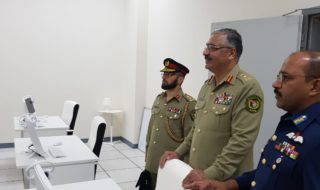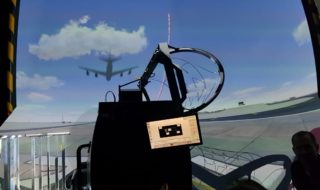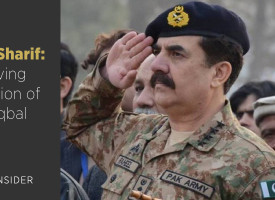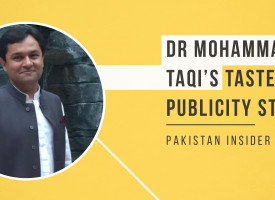In early February, French defence company Dassault Aviation delivered its first flagship Rafale jet to the Qatari Emir Air Force at a ceremony in Merignac, France.
The aircraft is a twin-engine multi-role fighter jet which can swiftly execute a variety of missions including aerial interdiction, reconnaissance, deep strikes in adversarial territory, anti-ship attacks and nuclear deterrence. It was originally launched in 2001 with a long-term view to provide carrier-based operations for the French Navy.
The Indian Air Force (IAF) has long been a prospective buyer. In September 2016, India signed an agreement with Francve for the procurement of 36 Rafale jets for deployment against the perceived “two-front threat” from Pakistan and China viz Ambala Air Force Station (Western Air Command) and Hasimara Air Force Station (Eastern Air Command), respectively.
A few days later, reports started circulating online claiming that Pakistani pilots on deputation to Qatar had trained their Emiri Air Force counterparts on the aircraft. The report was marked as ‘incorrect‘ by AFP. Mainstream news outlets in India followed suit. While not entirely dismissing Pakistan’s involvement in Rafale training, IAF Air Marshal (Retired) Muthumanikam Matheswaran wrote a commentary technically analysing the implications for India:
Features that are common to both Qatar and the Indian Rafale fighters are primarily the RBE 2-AA AESA radar, SPECTRA self-protection suite, the IFF (Identification, Friend or Foe) system, Elbit’s TARGO-II Helmet Mounted Display System, and such as the Meteor BVRAAM, Mica air-to-air missile, and SCALP air-to-ground long-range cruise missile. Anyone who flies the aircraft will obviously become familiar with its performance and operational envelope of systems and weapons.
He concludes his comment as follows:
It is quite obvious that Pakistani pilots will fly all these aircraft being procured by Qatar. It is irrelevant whether they have been trained in France on the Rafale. In all likelihood, they would have. We must factor this in our calculations.
French outlets including its Ambassador to India were compelled to dismiss the likelihood of any such indications.
The question still remains, is Pakistan involved in the Rafale training programme?
A recent tweet by the Public Relations Office of Joint Staff Headquarters, Rawalpindi (PRO JSHQ) apparently adds weight to the possibility:
General Zubair Mahmood Hayat, Chairman Joint Chiefs of Staff Committee, who officially visited Qatar, was briefed at Doha Air Base during his visit to Air Fighting Wing (Mirage & Rafale) on 18 Aug 2019. pic.twitter.com/Xvt7tYcZPx
— PRO JSHQ PAKISTAN (@projshqpakistan) August 24, 2019


The above tweet clearly indicates Pakistani involvement in technical training of the Qatar Emiri Air Force not only on Rafale technology, but also the Mirage, another French aviation product used extensively by the IAF.
India will be concerned about Pakistani military officials’ familiarisation with the core (standard) technologies inherent in Rafale aircraft. Can the IAF ensure air superiority in light of the fact that its adversary is fully cognisant about the technological prowess and limitations?
Indian Defence Minister Rajnath Singh and IAF chief Air Chief Marshal Birender Singh Dhanoa are scheduled to visit France in September to receive their first Rafale.
They should be aware that Pakistan is already a step ahead.







No comments!
There are no comments yet, but you can be first to comment this article.